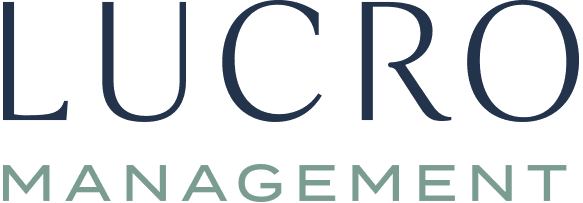One of Lucro’s Core Values is Transparency. We spoke about the transparency of numbers in a previous blog post (you can check it out here!). Being transparent is to have “motives that are easily perceived.”
Here, we are going to discuss the importance of transparency in why you do what you do within your organization. Transparency within an organization can lead to empowered and engaged employees and more efficient, effective communication; all of which lead to process improvement. Allowing practices to be easily perceived by your team members will lead directly to a more profitable business.
Each position in an organization has a specific job description which provides a list of tasks and objectives that the person fulfilling the position needs to complete for the business to be successful . Most of these tasks are connected to another position or department. For example in hotels, housekeepers have to clean the guest rooms in order for the front desk to check in a new guest. As a manager, many tasks and objectives are tied off what our employees complete- but do they know that? Do they know why they are running certain reports aside from being asked to do so? Do they know and understand the link between their work and the work of others? Can they articulate how their one task ties into the whole organization’s structure? Allowing transparency of the task in relation to the overall outcome could be a catalyst to a more productive and engaged team.
I have learned this over the course of several years while training new hires. (Look for a future blog on training for the trainee!). In the past, I have trained team members to complete the tasks that are needed. It is a 1, 2, 3 process and then you hand it off to the next person to finish. I found that several employees (specifically those who earned promotions to management positions!) kept asking, “but why am I doing this?”. During the early states of my career my reply was, “because this is the job” or “because this is what we have always done.” I thought they were questioning the process. What I didn’t realize is that they were asking “what is the final product, and how does my piece fit in?”. Once I realized this was the question, I was able adjust my thought process.
It was when I started working directly with the Night Auditors of a hotel that I experienced this firsthand . Their function was to run the reports. We had told them which number to put where, how to run the reports, and how to process the night audit. In the accounting department, we took those numbers and allocated them to the specific departments, verified them against totals, reconciled invoices and receipts and much more. I found that whenever there was a discrepancy during the night audit process, the auditors just didn’t complete their tasks – they didn’t know how to problem solve. I would spend my time completing their work before I could move onto my own. They didn’t understand the “why” behind their work.
I spent several nights with them going over the process, showing them what I did with their report upon the completion of a night audit shift. This was the best thing I could have done for my team and myself! After this process, the employees were able to troubleshoot their issues. They came to me with problems and the SOLUTIONS! Each were able to speak intelligently about what went wrong and/or how to fix it. They were even able to assist me in some of the additional tasks – reconciling invoices and receipts, verifying totals, etc. I began receiving requests for changes that would make both their job and mine, more efficient. They understood the process and were able to effectively change the process for the better! They felt empowered and gained a better sense of security in their role.
Immediately following the re-training of our night auditors, I was able to shift some administrative tasks off my plate due to their new abilities. This afforded me some personal time to start learning how my own job fit in the total operations of the business. I began learning the tasks of my manager and took on some of those particular responsibilities. In doing so, I gained the knowledge to grow in my career.
A mentor once told me, “If you are not replaceable, you are not promotable.” As a manager, sometimes we feel the power of having all the knowledge; the feeling that if we know something someone else doesn’t, they “can’t get rid of me.” You may be right, they may not be able to get rid of you from that position, but alternately there is no opportunity for growth. Additionally, as the manager, you are most likely in your position because someone gave you the knowledge of their job. They may have shown you a task here or there that allowed for you to understand the full picture. You should be offering the same opportunities to your teams. This will create a culture of engagement, communication, trust and loyalty.
You may be asking yourself, “but how does being transparent lead to a more profitable business?” First, employees who are more engaged in their organization have a higher sense of loyalty and are less likely to leave – turnover of employees is a major expense. Keeping employees engaged will reduce the expenses of recruitment, hiring, training, etc. Secondly, employees who can see the overall picture are able to assist in process improvement. They can come up with unique ways to create a more efficient work process, which reduces expenses, especially in payroll. Finally, employees who are empowered are happier and more helpful, thereby increasing guest satisfaction which will lead to returning guests and positive word of mouth marketing!


Recent Comments